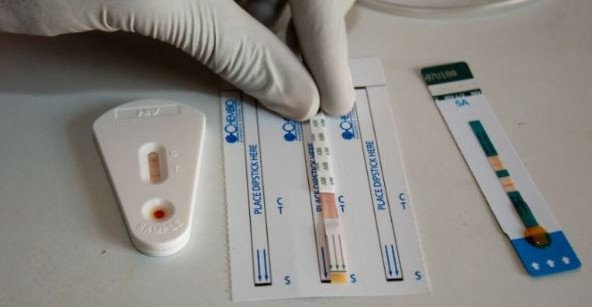The impending availability of lenacapavir, a potent Human Immunodeficiency Virus (HIV) prevention injection, has sparked intense debate in Nigeria. Hailed globally as a “transformational” tool, the drug is expected to become accessible in resource-limited countries, including Nigeria, for as little as $40 (under N70,000) per patient per year, drastically reducing its current market price of over $28,000 in the United States.
A Breakthrough in Adherence and Protection
Lenacapavir, marketed as Yeztugo, offers six months of protection against HIV with just two injections per year, a significant improvement over the daily pill regimen of traditional pre-exposure prophylaxis (PrEP).
Global health experts, including former U.S. President Bill Clinton, have underscored the drug’s importance, noting its potential to “change lives.” The durable protection it offers is considered especially vital for vulnerable populations, such as women who may face challenges with daily adherence or negotiating condom use. Projections suggest that even a moderate rollout in high-burden nations could potentially reduce new HIV infections by 20 per cent.
The drug’s affordability is thanks to a major new initiative involving key global partners like the Gates Foundation, Unitaid, and the Clinton Health Access Initiative, working alongside Indian pharmaceutical giants Hetero Labs Ltd. and Dr Reddy’s Laboratories. Reports indicate the generic rollout is expected in the coming weeks.
Deep-Seated Mistrust and Conspiracy Theories
Despite the promise of improved health outcomes, the announcement has been met with a flurry of skepticism and conspiracy theories on Nigerian social media platforms and among some members of the public. The distrust is often rooted in previous experiences and general mistrust of Western-backed health initiatives.
A fuel attendant in Port Harcourt, identified only as Tobe, voiced his apprehension, finding it difficult to believe the durability: “How can an injection taken only twice yearly replace PrePs taken every day for days? It’s just so hard to believe.” A student at the Federal University of Technology, Owerri, stated he would stick with the daily PrEP pills instead.
On social media, comments quickly shifted the narrative from health to suspicion:
- Population Control: Several users linked the initiative to alleged Western-backed population control agendas. One comment read, “The target is fertility. They will not give you anything without taking from you.”
- Fertility Concerns: Another user expressed direct suspicion, writing, “Watch fertility rate drop drastically and erectile dysfunction high. I don’t trust them.”
- Vaccine Trauma: Others drew parallels to the COVID-19 pandemic, expressing reluctance to take any new injection. An Instagram user, Doantus Godwin, wrote, “I don’t want to talk about the effects of the COVID vaccine I took… Na to kill our fertility rate this man dey find.”
Furthermore, some critics argued the intervention was wholly unnecessary, citing existing prevention methods like abstinence, condoms, and antiretroviral therapy (ARVs).
Focus on Rollout and Adherence
In contrast to the public skepticism, health experts are focused on the practical benefits. Dr. Dan Onwujekwe, a renowned public health researcher and former senior researcher at the Nigerian Institute of Medical Research, dismissed the talk of “ulterior motives” as unfounded fears.
Dr. Onwujekwe emphasized that the new drug is a critical piece of “progress” primarily because it will significantly improve adherence. “A lot of people are worried about taking PrEp for life. Most people don’t want to be seen taking that medication because they feel they will be stigmatised,” he said, highlighting how the twice-yearly injection combats the challenges of daily dosing and social stigma.
A user named Philomena Davies countered the social media negativity, writing: “God bless this man (Bill Gates). Hated by so many for no reason,” pointing to the undeniable benefit of the new, simplified prevention method.
Source: Punch








